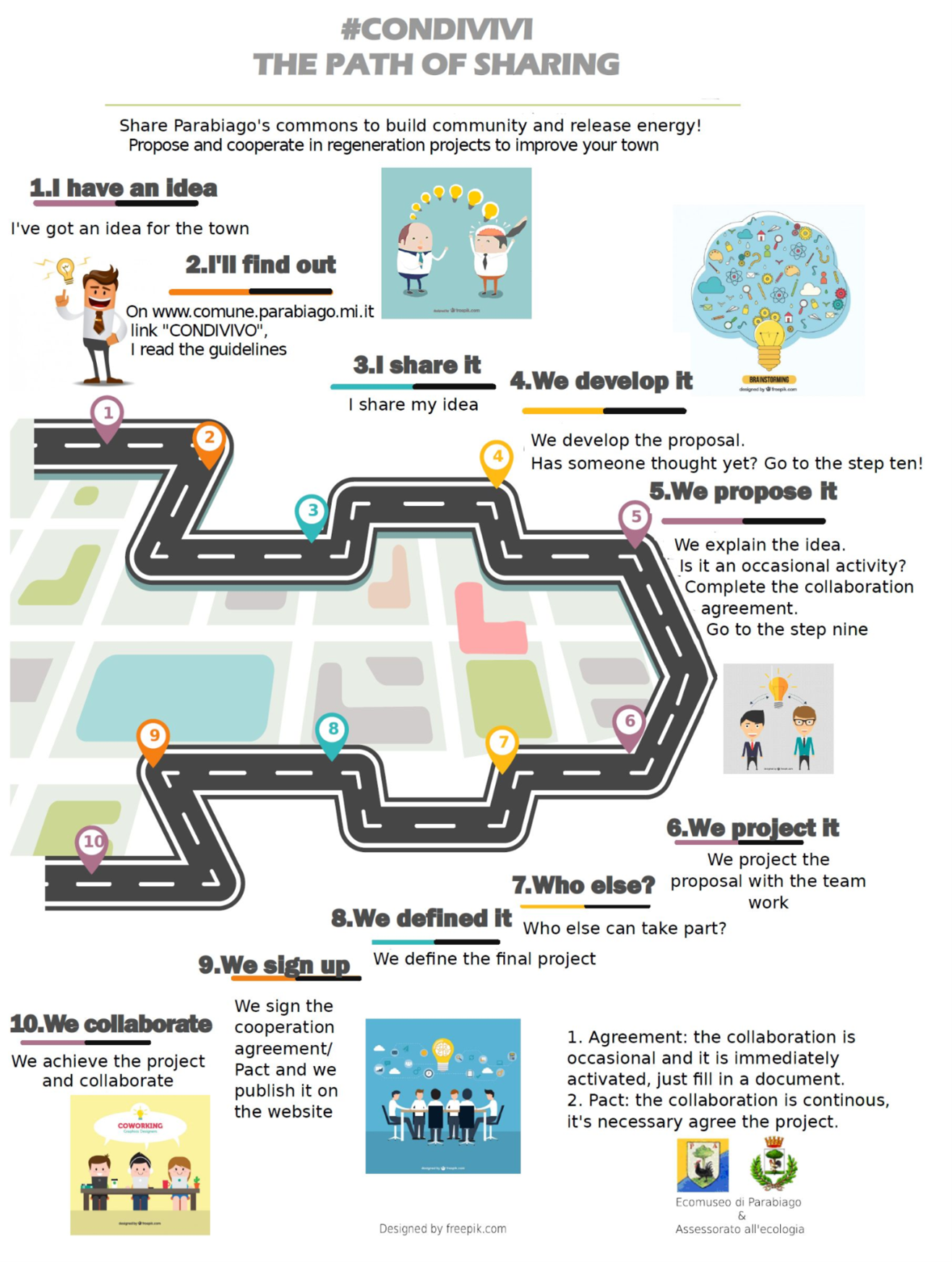
12 -18 months for the regulamentation - from 2 and more months to design and realize a cooperation agreement.
The aim of ecomuseums is not only the realization of participatory activities, but also to trigger cooperation agreements with citizens, for the care, management, and regeneration of the cultural heritage and the landscape.
Ecomuseums arrange human resources, skills and personal knowledge of its partners that are working together with full independence. Through cooperation agreements, the network of stakeholders can build a community and new energies can be released and valued in the community itself. In this way, the ecomuseum becomes a tool of “shared administration” of living heritage and common goods.
Ecomuseums become facilitators that make people able to release energies, and share resources inside the community itself, for the common interest . The agreements that were concluded in Italy were both formal and informal. Some ecomuseums approved regulations for the active citizenship participation and the shared administration of living heritage.
This is a important development of the community participation idea, according to the movement that in Italy tried to apply and promote the shared administration of common goods and the subsidiarity principle.
According to this logic the ecomuseum carries out not only their “own” projects or events; it also help and empower citizens to carry out heritage based projects that are in line with the long term participation plan of the ecomuseum.

Nunzia Borrelli, Barbara Kazior, Marcelo Murta, Óscar Navajas, Nathalia Pamio, Manuel Parodi-Álvarez, Raul dal Santo, Julio Seoane

This project has been funded with support from the European Commission. The content of this website reflects the views only of the author, and the Commission cannot be held responsible for any use which may be made of the information contained therein.
Except where otherwise noted, content on this site is licensed under a Creative Commons Attribution 4.0 International license.